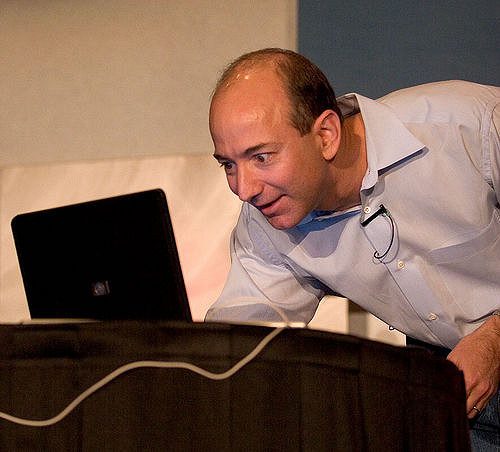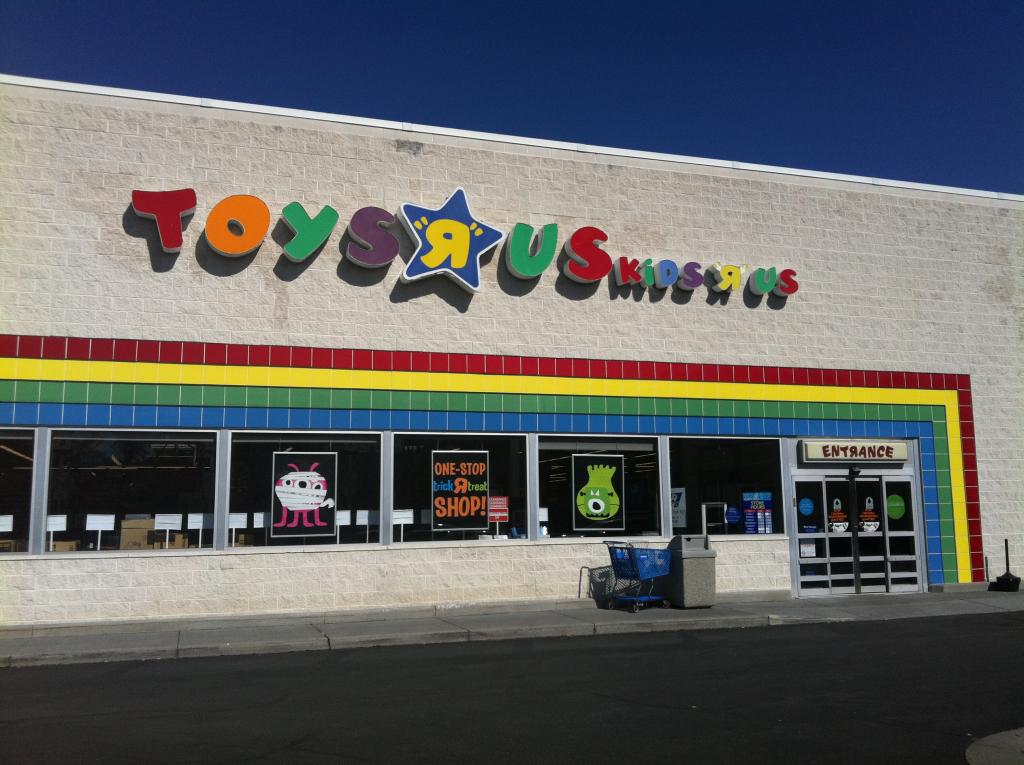
In the Tribune yesterday, “For Amazon’s Bezos, philanthropy is ‘saved for later’“, which turns the fact that Bezos is focused on making money — and lots of it — into an expectation that he will, of course, give generously as a philanthropist, when the time is right.
Which seems like more than a little bit of wishful thinking.
Here, after all, are some of the quotes they’ve gathered.
“Jeff is probably not quite ready to step down yet, but this is a guy who, like Bill, is fixated on changing the world in really important ways,” says Ed Lazowska, Bill & Melinda Gates Chair in Computer Science & Engineering at the University of Washington, who has solicited donations from Bezos. “It’s a full-time job. You have to imagine he will be every bit as philanthropic as Gates. Nobody has any right to make demands, and they have to give the guy time.” . . .
Making a major commitment takes humility and years of research to go down the right path, so for someone as work-obsessed as Bezos, “you’d really want to have a trusted partner or set of partners around you,” says Jeff Raikes, a former Microsoft executive who ran the Gates Foundation for almost six years. . . .
Much of the known personal giving associated with Bezos so far has been driven by his parents, Mike and Jackie Bezos. He sits on the board of the childhood-education focused Bezos Family Foundation, which his parents run. As of 2015, his parents had donated more than $68 million of Amazon stock to the foundation, tax filings show. Bezos had given about $6 million in stock to the foundation. Separately, the Bezos family has given $65 million over a decade to Seattle’s Fred Hutchinson Cancer Research Center, which does cutting-edge work on cancer cures. “My parents rock,” Bezos tweeted when the latest gift was announced.
Yes, that’s right: the major Bezos philanthropy is that of his parents, who were either given, or were early purchasers of, Amazon stock.
Bezos himself, according to the Trib, has given only small sums, relative to his enormous wealth: $1 million to Code.org, $10 million to Seattle’s Museum of History & Industry, $15 million to Princeton. The Trib mentions $2.5 million in support to a pro-gay marriage PAC in 2012 (that is, before Obergefell), but that’s not actually philanthropy. Amazon itself is cited as having been “largely MIA as a corporate donor in Seattle” for many years until public pressure caused them to change.
Now, you’ve got the Giving Pledge as a model. Billionaires pledge to give the majority of their wealth to charity. But — surprise! — they do not pledge to do so during their lifetime; they can spend as much as they want, really, enjoy unfathomable luxuries. The Giving Pledge seems to me, except for a few who really do spend down their wealth while living, to be a way to get credit for their professed intention of making bequests when they die. It’s pretty risk-free, if you decide that your offspring are adequately provided for with a couple hundred million or so each (most of the pledgers have wealth in the 1 – 3 billion range).
I spent a few minutes trying to assess whether being a Buffet- or Gates-style philanthropist is the norm. Here, after all, is Forbes’ list of the top ten wealthiest Americans:
- Jeff Bezos, $93.7 billion
- Bill Gates, $89.6 billion
- Warren Buffett, $80.3 billion
- Mark Zuckerberg, $74.2 billion
- Larry Ellison, $61 billion (Oracle)
- Larry Page, $48.8 billion (Google)
- Charles Koch, $48.1 billion
- David Koch, $48.1 billion
- Michael Bloomberg, $47.6 billion
- Sergey Brin, $47.5 billion (Google)
Of these, Wikipedia reports that Larry Ellison has given away 1% of his wealth (part of this as an element of a legal settlement). Mark Zuckerberg and his wife have pledged to give away 99% of their fortune, but it is not clear how much they have actually given away at this point in time. Larry Page has a family foundation with assets of $1 billion, but it’s not clear how much came from Page personally. Sergey Brin and his ex-wife Anne Wojcicki (CEO and co-founder of 23andme) have founded the Brin Wojciciki Foundation, with assets of about $1.4 billion as of 2014. Bloomberg — well, there’s lengthy list of causes Bloomberg supports, and his political activism blends into his charitable actions (does a donation to an anti-coal environmentalist group or a gun-control group come under political advocacy or philanthropy?). The Kochs? Well, in 2015, it was reported that they had donated $1.5 billion to a variety of causes, from hospitals to museums and the arts, stirring controversy along the way from people who preferred that museums reject those donations.
None of these men, of course, have followed the Tom Monaghan model. The founder of Domino’s Pizza and one-time owner of the Detroit Tigers, wanting to be more true to his faith, sold a 93% stake in the company, and sold the Tigers, and his Bugatti Royale, and his private island-resort (well, he didn’t own the whole island, but had a private resort on Michigan’s Drummond Island), and instead began a life of philanthropy generous enough as to found an entire university, Ave Maria University, with 1,000-ish students and tuition that, at about $20,000, is nearly as low as some public universities.
But the very concept of Bezos, a man who is, near as I can tell, driven by moneymaking and power (and whose company’s success was fueled, in part, by the exemption from sales taxes which he fought to retain, and which is causing the demise, not just of bricks-and-mortar retailers but of the urban spaces around them), simultaneously working to Make The World A Better Place? I’m sorry, but I just don’t see it.
Sure, I can imagine that public pressure and the need for a good public image will motivate philanthropy, as well as, ultimately, the recognition that the mere fact of possessing money that he cannot possibly enjoy except as a number to contemplate, is somewhat superfluous. But it rather seems that he does have plans for his money — the Tribune cites a plan to build up his space exploration company BlueOrigin — and imagines that, with such vast wealthy, he can’t possibly do something mundane but has to reserve his money for something truly extraordinary.
And, to be sure, it’s his money. He has no apparent religious convictions one way or the other that would impel him to believe that we have a duty to others outside ourselves. He deserves no special adulation because of his wealth, and there is no reason to believe that money alone creates a spirit of generosity. After all, wasn’t there someone who said something about camels and needles?
Image: https://www.flickr.com/photos/oreilly/6629226; creative commons 2.0; the caption is “Amazon founder Jeff Bezos looks at a Windows Update dialog box on his presentation machine offering him the choice to restart” but you can fill in your own image of what he’s looking at and thinking about.













